Assassin’s Creed Valhalla Review on PS4
There have only been two games since Ubisoft’s big RPG shakeup of the Assassin’s Creed franchise back in 2017, but in that time I’ve already found myself fatigued by its new look. For all the positive design changes, Origins and Odyssey ultimately looked and felt very samey.
No wonder, then, when news that icy plains, snow-capped mountains, and lush English countryside would serve as locations for the next Assassin’s Creed game, I was hugely excited. It also helps that I’m a British and Viking history nerd!
The reality of Valhalla’s Norwegian starting area, though, is that it actually doesn’t leave a great first impression. Void of any interesting flora and fauna, and lacking much in the way of quality content, I found the first few hours disappointingly dull and without charm.
This is all despite Ubisoft’s best efforts to get me hooked; after just an hour, I’d already engaged in combat and stealth, climbed a sync point, used the raven, sailed a ship, raided a village, played drinking and dice mini-games, and seen visions of the gods after taking a Seer’s hallucinogenic broth. Talk about being force-fed the series’ tropes…
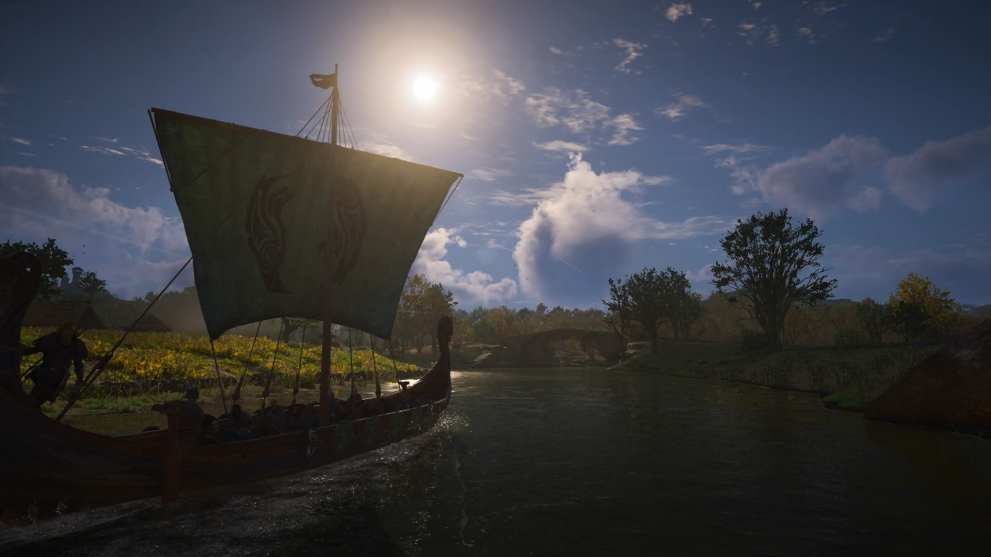
It’s only after I’d sailed for pastures greener and arrived in England that Valhalla suddenly came alive, and I can’t understate how drastically it improved from that point on. In fact, I struggle to think of any game in recent years that has captured me so much after having misfired so spectacularly in its opening chapter.
But the intrigue of Valhalla’s story and the purpose of its new gameplay mechanics are given a fresh impetus and context when Eivor and his brother Sigurd land on English shores. The plot is mostly concerned with forging new alliances with surrounding Saxon, Dane, and Brittonic leaders all vying for control of the country. Naturally, of course, there are nefarious forces behind the scenes pulling the puppet strings.
The Order of the Ancients have been Assassin’s Creed’s main antagonists since Origins, and they’re back again seeking to control England’s fractured society. But that’s a story that only really bubbles away in the background for most of Valhalla, which is first and foremost a series of regional chapters that almost feel more like huge, meaty side-quests rather than a main story arc.
In fact, one of Valhalla’s most interesting design traits is that it pretty much does away with the conventional quest structure of its predecessors. Gone are the overwhelming hundreds of short side-quests around the open-world. And the near anxiety-inducing thousands of question marks have also been ditched. Valhalla is far more streamlined, with only a handful of supplemental storylines interrupting the main quest arcs.
The shorter stuff still exists in a sense, but they’re now called “World Events” and represented by blue orbs around the map, as are a bunch of other bite-sized activities like Hallucination Challenges, Standing Stone puzzles, and more.
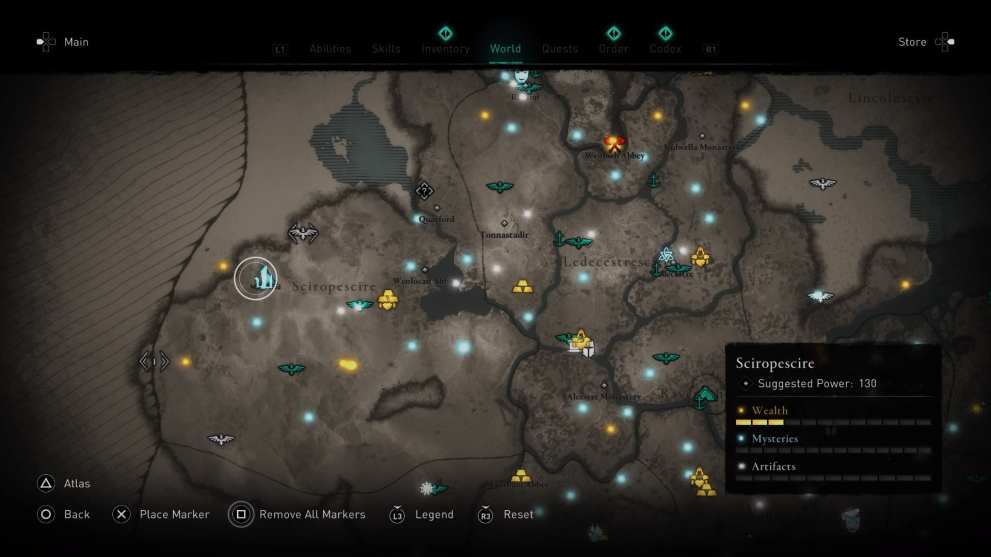
All of Valhalla’s content outside of proper questlines, in fact, are represented by orbs, and this is a new initiative for the series clearly targeting a less cluttered approach to exploration: gold “Wealth” orbs represent special loot such as new gear and abilities, the aforementioned blue are called “Mysteries,” and white orbs are collectible “Artifacts.”
These are constantly on your compass as you navigate the world, and can be seen afar by using Evior’s handy eye-in-the-sky raven. I was a little skeptical of them at first, but I can see now after 60 or so hours with the game that they’re a better alternative to question marks and a long list of side quests. It just makes exploration easier, even if the joy of discovery itself is sullied somewhat in the process.
The big takeaway, though, is that Ubisoft is making a tangible effort to put the focus firmly on exploration and worked to remove the overly grindy nature of Origins and Odyssey; there are fewer weapons and gear items, and there’s less level-gating overall. Valhalla is still every bit the same full-fat role-playing experience, but it feels less of a chore to play, which is a hugely welcome change.
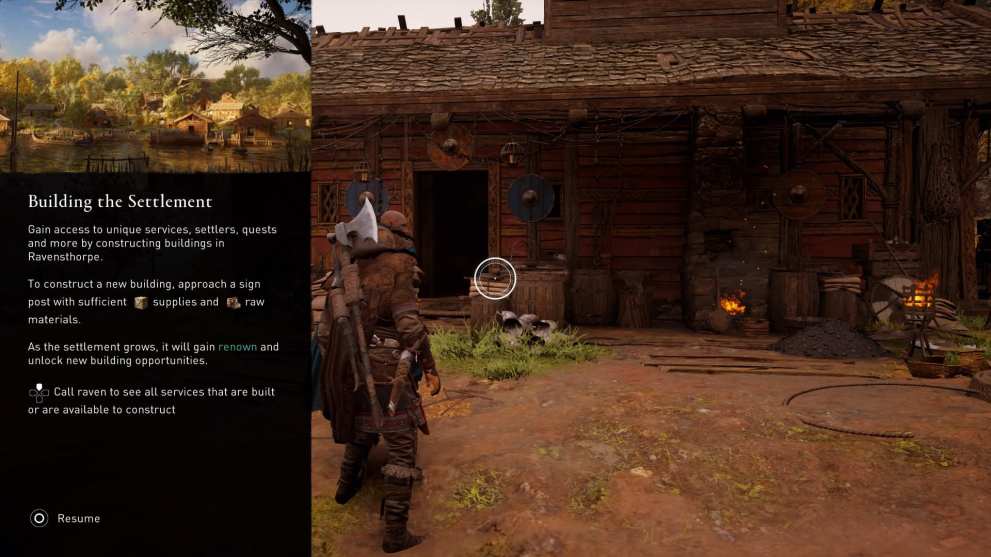
It feels different for more reasons than just the orb system, too, with a bunch of major new mechanics that make their debut in Valhalla. Most notably, the settlement-building system, which serves as a nexus point for the entire gameplay experience.
Using supplies plundered from the open-world, players establish Ravensthorpe from inception to a budding new town complete with a dockyard, barracks, trading post, stables, and much more. The expansion takes place across six different levels, unlocking new perks and buffs for Eivor along the way. Overall, there’s not a huge amount of depth to it, but there is certainly enough to make it a rewarding and purposeful distraction.
Raiding is another major part of the gameplay experience, which more or less replaces bandit camps as Valhalla’s big red icons to tick off across the map. To fuel Raventhorpe, Eivor and his Viking crew can plunder for supplies from towns and monasteries, which plays out as a seaborne skirmish from your Longship. After initiating a raid, players work their way toward two or three large chests containing supply and materials, completing the objective when all of them have been forced open.
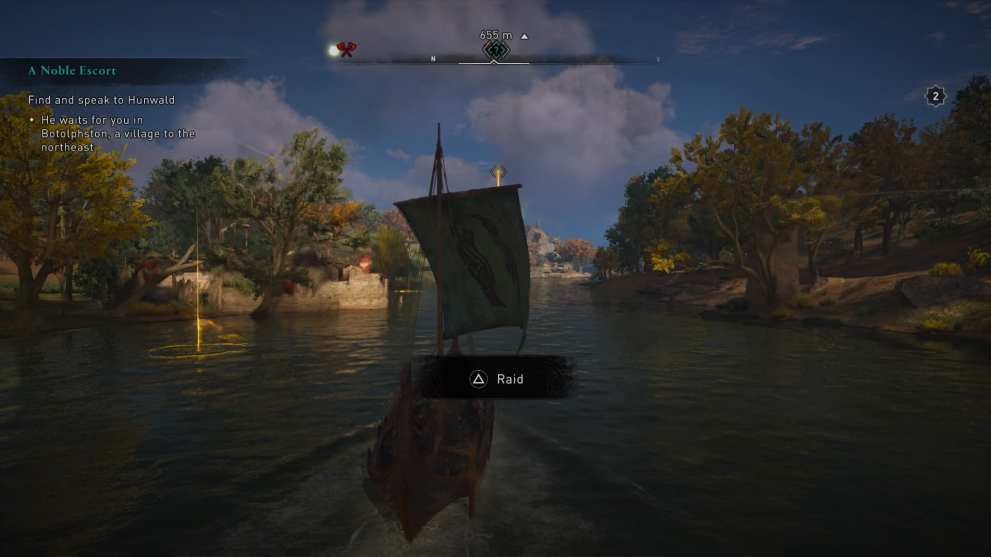
Similar to raids, castle assaults are now a thing, too, which typically form the crescendo of each main questline and more or less play out in the same way: Eivor is tasked with leading a few dozen troops into battle, using a battering ram or two along the way before arriving at a final boss in a loop that feels inspired by Ubisoft’s For Honor.
I found both the raids and castle assaults a fairly robust and entertaining activity, even if there’s a bit too much repetition of them by the game’s end. Also, the grandeur of their spectacle is lost slightly when you realize it’s possible to ignore combat and just beeline towards objectives.
And avoiding combat is something I did quite a bit of because, despite the series’ continued improvements over the years, Valhalla’s combat still underwhelms. It’s fine, it’s serviceable, but there’s definitely an element of jank and imprecision that still plagues Assassin’s Creed, and it felt jarring after the fluidity of, say, Ghost of Tsushima and other more polished action games.
Thankfully, the stealth aspect of the combat experience is much stronger; particularly so, as a result of the new timed assassinate mechanic, which allows Eivor to kill enemies of a higher power level — something that was a huge problem in Origins and Odyssey. All in all, despite Valhalla ironically basing itself around the warrior life of a Viking, the stealth mechanics feel much closer to OG Assassin’s Creed, and I think longtime fans of the series will appreciate the change.
Once you do adjust to the feel of standard combat, there’s plenty of fun to be had honing your character build according to preference thanks to the huge and complex skill tree.
Leveling in Valhalla isn’t traditional in the sense that the game doesn’t enhance your character organically. Every level you gain is actually a “Skill Point,” which is spent manually, meaning that you choose every single stat and buff your character has.
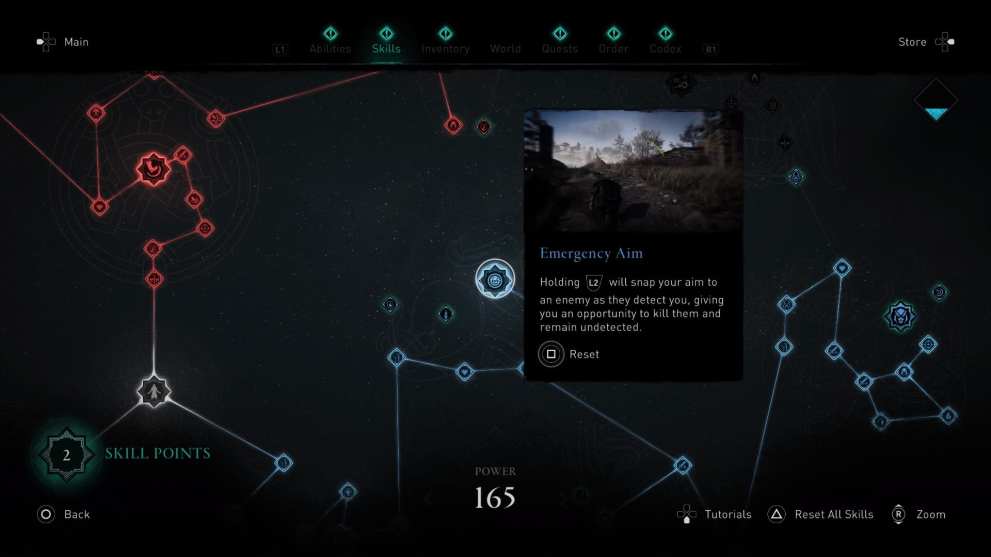
Initially, it’s actually too overwhelming to use properly since it’s near impossible to keep track of every tiny stat boost, and most of them are fairly similar in all directions of the skill tree. Also, the perks and abilities they lead to are hidden until unlocked, which makes plotting a build tough. But once everything is revealed, it all makes sense, and Valhalla allows you to instantly respec any stat at the press of a button. So it’s a case of waiting patiently until the mid-game for the system to come alive.
But the true star of Valhalla isn’t so much the new mechanics as the open-world itself. England is an utterly brilliant sandbox with its gorgeous, varied countryside littered with mysterious Roman ruins. The topography is as diverse as the three different cultures who inhabit it, and there are so many secrets and points of interest to explore along the way. I think it might actually be my favorite setting in an Assassin’s Creed game ever.
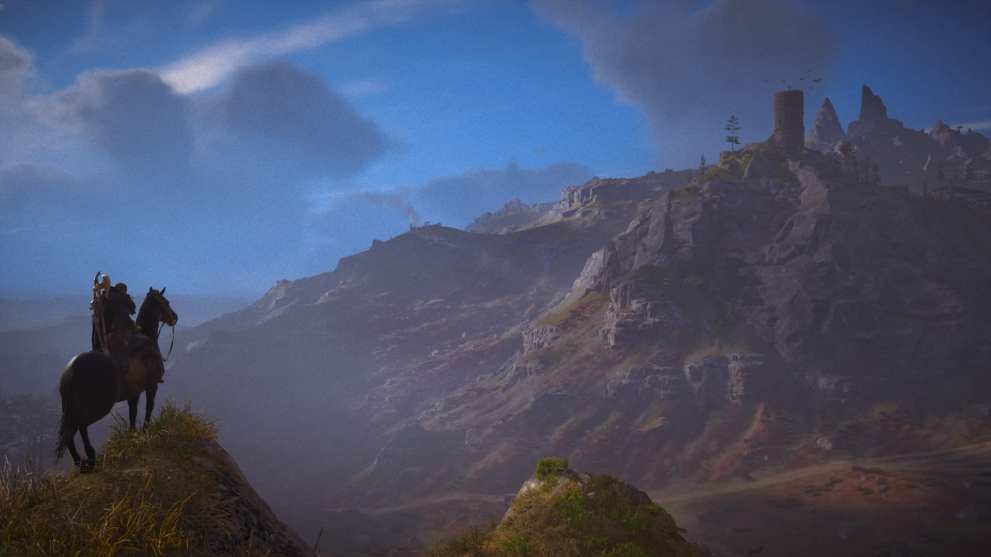
The world, though, would be nothing without the stories to breathe life into it, and I’m happy to say that the storytelling in Valhalla is mostly top-notch. From the alliance map, players are able to choose different quest arcs to pursue as they work their way across England, and while the overall structure of those quest arcs became a bit predictable by the game’s end, the stories themselves were all enjoyable, and the characters well-written and interesting.
I particularly liked the questlines in Lunden and Jorvik, which felt like a throwback to older Assassin’s Creed games for their focus on assassinations. The only frustration is that while Valhalla’s alliance map offers players the opportunity to tackle quests in different orders, the choice is really an illusion since only toward the very end of the game are you leveled high enough to truly choose where you want to go. Before that, most options are gated to all but those who really take their time exploring and gaining experience before moving from arc to arc.
The only complaint I have about the plot, in general, is that the main story arc doesn’t have a great deal of urgency. Because you’re moving from region to region on a mission to forge new alliances, the stakes never feel particularly high until the very end of the game. There are long periods where the main thrust of the story takes a back seat to supplemental quest arcs before things really ramp up.
There’s also the slightly puzzling manner in which Valhalla presents the population of England mostly embracing an invasion of Viking raiders, which fits the power fantasy vibe of modern Assassin’s Creed games but certainly isn’t in line with any sort of historical accuracy. The plot doesn’t entirely ignore framing the Norse and Danes as aggressors, but it sanitizes aspects of their culture that don’t fit with Eivor’s role as a hero, such as slavery.
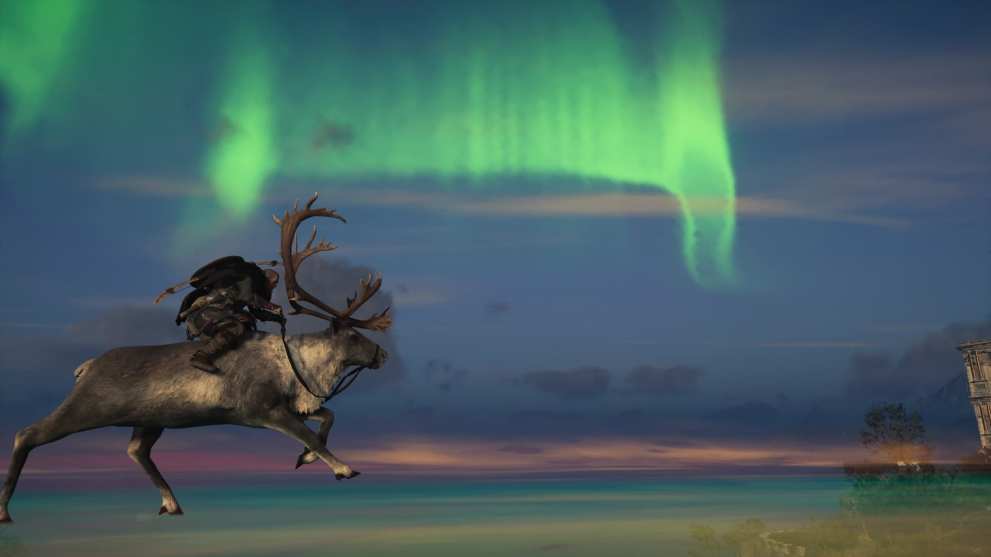
Another small gripe I have with Valhalla is that despite Ubisoft’s efforts to streamline the overall package in the wake of Odyssey, it’s still a very long game. Far longer than it needs to be, really. Even with fewer side quests and the orb exploration system helping channel my playthrough, I still clocked over 60 hours more or less charging through the game. You could easily sink 100+ hours.
That’s in part because Valhalla is two games rolled into one; there’s an entirely separate (and substantial) storyline that takes an intoxicated Eivor to the mythological realms of Asgard, which actually surprised me with how robust and well-written it is. This secondary storyline essentially replaces the modern-day Abstergo Industries stuff that always broke up the action in Assassin’s Creed games of old. To be clear, Layla Hassan returns in Valhalla, but she’s even less involved than during Origins and Odyssey.
As for the game’s technical performance, I was most impressed by Valhalla. It doesn’t have anywhere near the polish of shorter, more focused action-RPGs like, say, Horizon Zero Dawn, and there are bugs here and there. But outside of a few crashes, it ran pretty well on my base PS4. The framerate and general appearance certainly feel like a game built on the solid foundations of those that preceded it.
Perhaps a little too much like its precessors on occasions, though. Indeed, I think I’d be remiss not to mention my belief that Valhalla would have benefited from an even longer break between Assassin’s Creed installments. Even though across both its aesthetic and game design it does feel separate from Origins and Odyssey, I can’t see how the series can ever truly reach that essential, must-have status without a longer, more considered development cycle that truly seeks to change the mold.
For the time being, then, Valhalla is a superb but familiar open-world experience. It’s sure to excite fans of the series with another impressively content-rich and beautiful sandbox to explore, and it might just interest newcomers and lapsed Assassin’s Creed players with the intrigue of its setting and more streamlined overall design. Ultimately, though, it falls just shy of true excellence — a high benchmark to meet, but one Assassin’s Creed should be held to after so many years of trying to get it right.
Pros
Cons
The progression system only really starts firing towards the end of the game.
Some level-gating, mostly because the game is too long for its own good.
